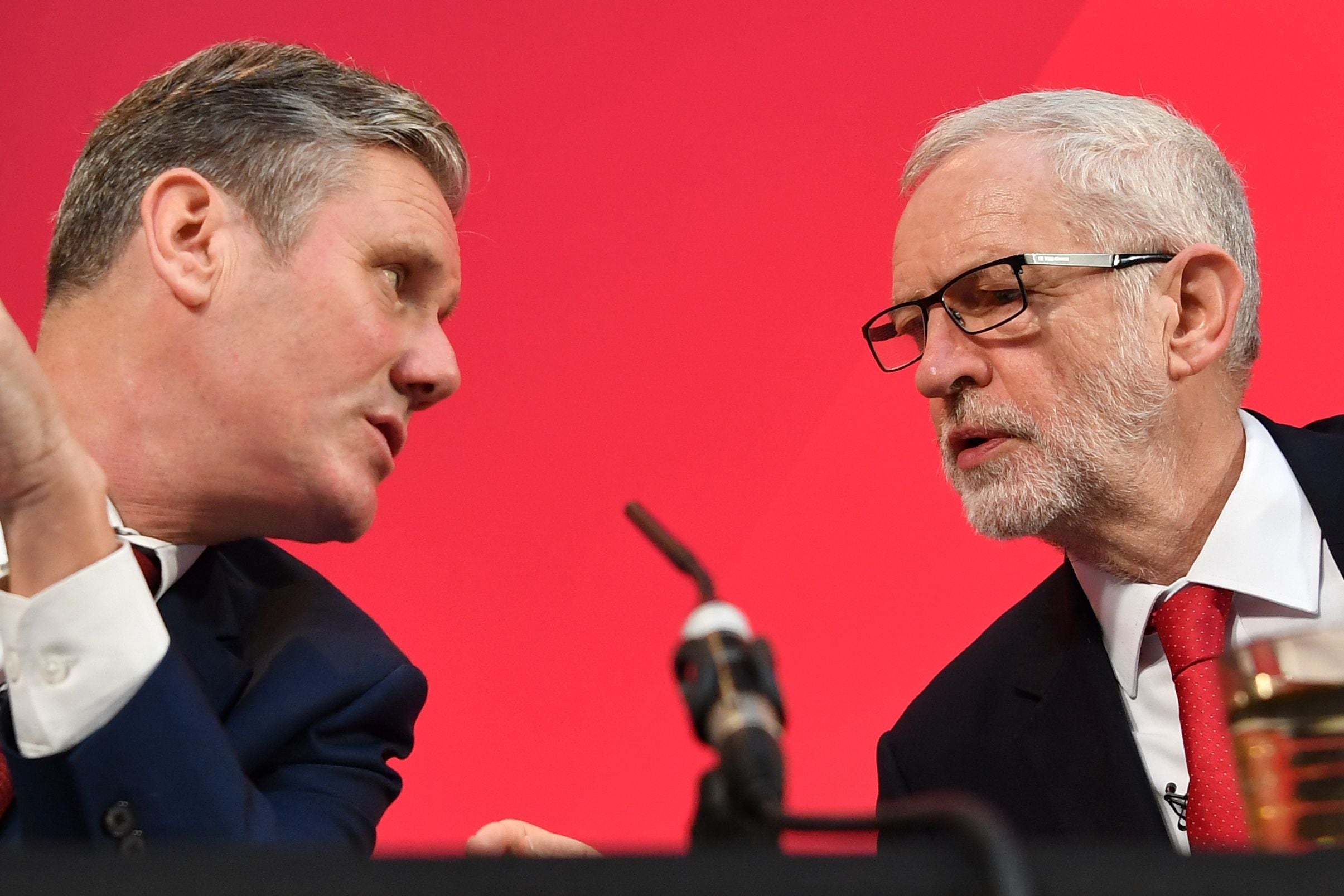Labour can only make progress if it fights the enemy in front of it – not the one it wishes for
The opposition needs to ask itself this question, writes Andrew Grice: what if voters do believe austerity is over, and think Johnson does head the ‘new government’ he trumpets?


The real significance of the Budget, masked by Rishi Sunak’s measures on coronavirus, was the transformation of the Conservatives from a small-state party with Thatcherite instincts into a high-spending, high-borrowing party.
It would have happened even without the coronavirus outbreak, as Boris Johnson’s government adjusted its sights to the new, blue-dominated political map after December’s election. Most of the infrastructure spending will be outside London and the southeast. Extra spending on public services will almost certainly require tax rises, a sea change for a party that worships at the altar of tax cuts.
Johnson allies are frustrated that the seismic change did not get the attention it deserved because of the media focus on the disease. “This is a huge moment; the real story is not about coronavirus,” one told me.
The partial eclipse of this landmark Budget also hid its significance for the Labour opposition. Predictably, some Labour figures again claimed the party had won the argument on austerity. The line to take was to claim, wrongly, that the Tories had finally admitted austerity was a political choice, as Labour argued all along. “We woz right,” in other words.
At the same time, Labour claimed austerity was not over at all, a rather confusing message to voters. There is a case that the spending boost on day-to-day services is far from generous, but that cannot be said on infrastructure. Labour can’t take much refuge in attacking the Tories for not reversing £41bn of their spending cuts since 2010; even Labour’s spendthrift manifesto did not do that – on welfare, for example.
Labour needs to ask itself this question: what if voters do believe austerity is over, and think Johnson does head the “new government” he trumpets? It would be no use Labour banging on about a lost decade of Tory austerity. “New” is a powerful political slogan, as New Labour discovered. Labour would love to think their enemies are the same old Tories, but if they really have changed, Labour will need to change too.
It suits Jeremy Corbyn’s allies to blame Labour’s worst election defeat since 1935 on Brexit, as it deflects attention from his leadership, a manifesto too good to be true, and antisemitism. This has bred complacency among some in Labour, a sense that now the UK has left the EU, normal politics will resume. With domestic policies in the ascendancy, and public services stretched, the pendulum would surely swing back to Labour. But the new Tories know this; the Budget is designed to stop it happening.
Although it is never an easy gig to reply to a Budget in the Commons, Corbyn’s response on Wednesday was worse than the low expectations of it. He argued that Sunak’s package did not come close to being a “turning point,” a statement likely to be proved wrong by history. Although Corbyn was right to say it did not do enough on climate change or anything on social care, he was wrong to dismiss as “all smoke and mirrors” Sunak’s claim of the biggest capital spending injection since the 1950s.
Fortunately for Labour, there are some straws of realism in the wind. Keir Starmer, the frontrunner to succeed Corbyn, said: “We should take no satisfaction in the Tories finally accepting they have spent a decade on the wrong track. The question we now face is what kind of country do we want to be? And this Budget is silent on the social injustices we see all around us.”
Pat McFadden, a former Labour minister, told the Commons the Budget was “a testament to the [Tory] party’s capacity for reinvention and its hunger for power”. He warned Labour that responding to this undoubted shift in fiscal strategy “will require more than reaching for the same slogans as before ... When your opponent has adapted, you have to adapt too and that’s something that we must do.”
Stewart Wood, a Labour peer and former adviser to Gordon Brown and Ed Miliband, said it might be difficult for Labour to brand Johnson “an austerity prime minister”. He told the BBC the centre of political gravity had moved to the left. Under Miliband’s leadership, “we struggled to move the consensus in that direction. It has moved well beyond that now.”
In 2010, when Labour was similarly off the pitch and immersed in a leadership contest after an election defeat, the Tories exploited the vacuum ruthlessly by pinning the blame for a global financial crisis on overspending by the Labour government. It was a lie, but many voters believe it. Even worse for Labour, some still do today.
History may repeat itself. The national emergency will make it harder for the Labour leader elected on 4 April to get a hearing. Labour needs to have a fundamental rethink on its tax and spending strategy. It will not be enough to say the Tories should spend even more, to think of a number and double it.
Labour will not make progress if it remains in denial about the new Tories, and fights the enemy it wishes rather than the very different one it now has.
Join our commenting forum
Join thought-provoking conversations, follow other Independent readers and see their replies
Comments